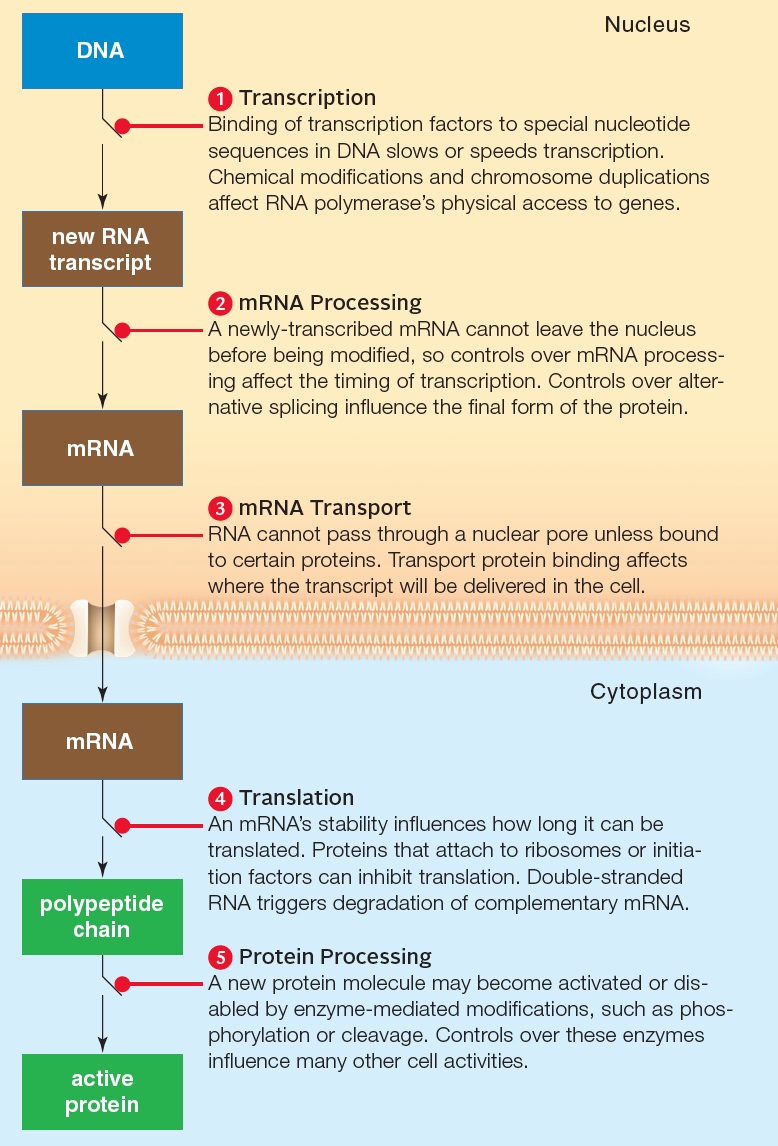 |
| Previous Image | Next Image |
| Description: 1 Binding of transcription factors to special nucleotide sequences in DNA slows or speeds transcription. Chemical modifications and chromosome duplications affect RNA polymerase’s physical access to genes. 2 A newly-transcribed mRNA cannot leave the nucleus before being modified, so controls over mRNA processing affect the timing of transcription. Controls over alter- native splicing influence the final form of the protein. 3 RNA cannot pass through a nuclear pore unless bound to certain proteins. Transport protein binding affects where the transcript will be delivered in the cell. 4 An mRNA’s stability influences how long it can be translated. Proteins that attach to ribosomes or initiation factors can inhibit translation. Double-stranded RNA triggers degradation of complementary mRNA. 5 A new protein molecule may become activated or disabled by enzyme-mediated modifications, such as phosphorylation or cleavage. Controls over these enzymes influence many other cell activities. Picture Stats: Views: 263 Filesize: 306.18kB Height: 1146 Width: 778 Source: https://biology-forums.com/index.php?action=gallery;sa=view;id=49107 |
